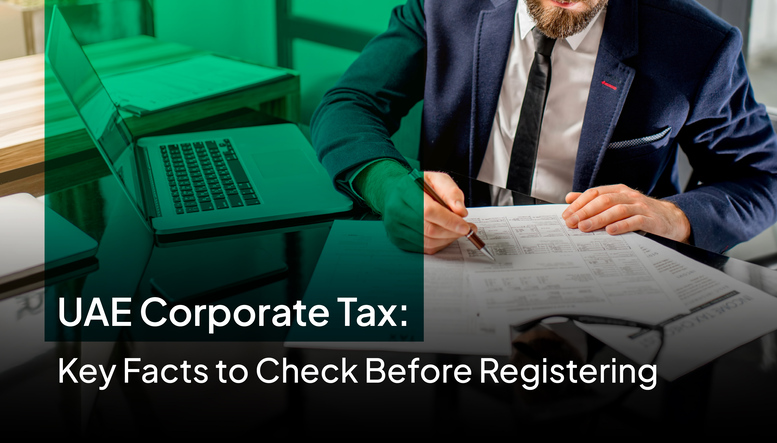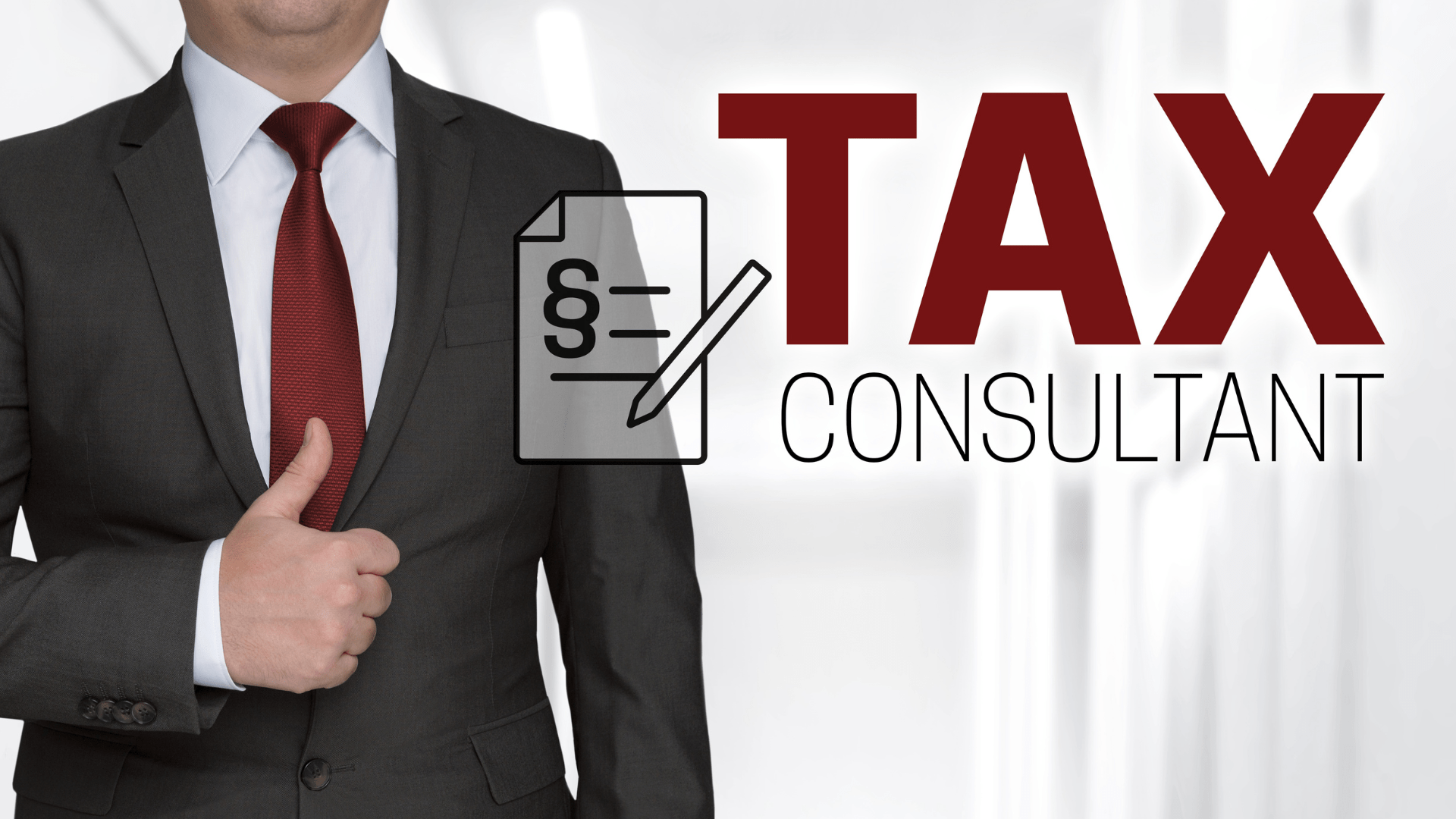Corporate tax is the talk of the town in the UAE, and it has got businesses asking a ton of questions. What does it mean for my business? Do I need to register? And how do I make sure I am doing it right? This is where corporate tax consultants in Dubai come in handy, We help businesses understand the rules and stay ahead of them with ease. But before you call in the experts, let us walk through the blog ‘UAE Corporate Tax: Key Facts to Check Before Registering‘ wherein we discuss the basics and key facts you need to know about this. A little clarity now will definitely save you a lot of headaches later!
What is UAE Corporate Tax?
The UAE introduced corporate tax in June 2023. It is a 9% tax on net profits for businesses earning more than AED 375,000 annually. Even with this change, the UAE still offers one of the most attractive tax environments globally.
Why Did the UAE Introduce Corporate Tax?
You might wonder why the UAE, known for its tax-free policies, made this shift. Well, here are some reasons:
- Diversifying the Economy: The UAE wants to reduce its reliance on oil revenues and build a more sustainable future for the country.
- Global Alignment: The tax helps the UAE meet international tax standards, like the OECD’s global tax framework.
- Funding Public Services: Corporate tax will help improve infrastructure and public services.
It is a significant move for the UAE’s long-term growth, but it also means businesses need to adapt.
Who Needs to Register for Corporate Tax?
Not every business is required to pay corporate tax. But,
- Businesses That Must Register:
- Companies operating in the UAE mainland.
- Free zone companies earn income from the mainland.
- Exempt Businesses:
- Government entities.
- Non-profit organizations.
- Companies in the natural resources sector (taxed under other rules).
Even if you think your business is exempt, you might still need to register to confirm your status. You can reach out to top corporate tax services in UAE for more details and assistance.
What to Consider Before Registering
1. Understand Your Business Location
Where your business operates matters.
- Mainland Businesses: Pay tax on all income.
- Free Zone Businesses: Enjoy tax incentives but face rules when earning from the mainland.
2. Check Your Revenue
If your annual profit exceeds AED 375,000, you are subject to corporate tax. Businesses earning less than this are exempt but may still need to report their finances appropriately.
3. Know Your Tax Residency
Tax residency determines your obligations:
- Companies registered in the UAE are tax residents.
- Foreign branches with a significant presence in the UAE might also qualify.
4. Double Taxation Treaties
The UAE has agreements with over 130 countries to prevent double taxation. This ensures you are not taxed twice on the same income, which is a big advantage.
What Expenses Can You Deduct?
Reducing your taxable income is all about knowing which expenses are deductible. Here are some examples:
- Salaries and benefits for employees.
- Rent and utility bills for your office.
- Advertising and marketing costs.
- Interest on business loans.
You may keep in mind that personal expenses and fines are not deductible. Accurate record-keeping is essential to avoid any tax-related issues, for that you can rely on reputed accounting and bookkeeping services in UAE.
Stay Compliant to Avoid Penalties
Compliance is important to avoid fines or other problems. What you need to do is:
1. Register on Time
The FTA will regularly notify Registration deadlines. Don’t delay; register early to avoid penalties.
2. Maintain Proper Records
Maintain thorough and accurate records. Incomplete and inaccurate ones may invoke heavy fines.
3. File Taxes Annually
You will be needed to file your returns yearly. Missing deadlines or filing wrong returns may also entitle you to pay hefty penalties.
Free Zones vs. Mainland: What is the Difference for Corporate Tax?
Free Zones
- Many free zones offer a 0% tax rate for eligible businesses.
- Income from outside the UAE or within the free zone is usually tax-free.
- Earning income from the mainland might subject you to corporate tax.
Mainland
- Mainland businesses pay corporate tax on all global income.
- While there are more regulations, you have full access to the UAE market.
What to Do: Choose your business location carefully based on your operations and tax benefits.
An Overall View on How to Register for UAE Corporate Tax
1. Prepare Your Documents
You will need:
- Your trade license.
- Financial statements.
- Emirates ID of key stakeholders.
- Tax residency certificate (if applicable).
2. Register on the FTA Portal
Visit the Federal Tax Authority’s website to register for an account, then initiate the registration process. Before submission, all contents must be double-checked.
3. Keep Up with Updates
Tax rules can change. Stay informed by following FTA announcements or consulting with a tax advisor.
Common Myths About Corporate Tax
Let us clear up some misunderstandings on corporate tax in the UAE:
Myth: “Free zone businesses don’t pay tax.”
Reality: Some free zone income is tax-free, but income from the mainland might be taxed.
Myth: “Corporate tax applies to all revenue.”
Reality: Only net profits over AED 375,000 are taxable.
Myth: “Small businesses do not need to register.”
Reality: Registration might still be required even if you are exempt.
Why You Might Need a Tax Advisor
Corporate tax can be complex, and mistakes can be costly. A tax advisor can:
- Help you identify deductions and exemptions.
- Ensure timely and accurate filings.
- Provide strategies to reduce your tax burden.
It is a smart investment for peace of mind.
FAQs
1. Are Corporate Taxes Applicable to Freelancers?
Yes, freelancers if the net profits exceed AED 375,000 per annum.
2. May I register without a tax consultant?
Sure, but having expert advice will prevent you from committing a mistake.
3. What will happen if I do not register on time?
You will be penalized, and they may target you for increased scrutiny from the tax authorities.


